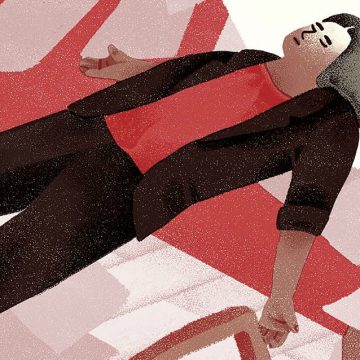When I started articling three years ago, I was overwhelmed and constantly on edge. Frustrated, I decided to try meditation. At first, I would spend five minutes a day, using the timer on my phone, inhaling “let,” exhaling “go.” After two weeks, it made a real difference. I was less reactive and more focused — I was hooked. Since then, daily meditation has kept me happy as I meet the demands of the profession. And I’m not the only one.
Mindfulness has reached its tipping point. Once a mysterious, fringe practice, it simply means becoming more attuned to the present moment, often through meditation. Top achievers — from financier Ray Dalio to media magnate Arianna Huffington — have raved about its benefits. And a recent feature story in Time magazine argued that we are in the midst of a “Mindful Revolution.”
It’s easy to see why. A team of researchers from Harvard recently found that consistent meditation can actually decrease the size of the amygdalae, the area of the brain that processes emotional responses. (When the amygdalae are activated, your heart beats fasts, your hands shake or your cheeks go red.) As a result, those who meditated were less prone to stress. Better still, meditation can increase the size of the hippocampus, thereby growing our capacity to make rational decisions.
As this research has gone on, lawyers continue to feel stressed. Studies continue to proliferate that show how lawyers flounder when it comes to managing anxiety. And what do people do when they are unable to cope?
For some, it means they drink in excess or use drugs to escape. For others, it means they completely shut down on their partner and alienate the people in their lives who are their best support. This, in turn, can cause them to neglect their work and fail their clients. And sadly, some will become downright hopeless, slipping into depression. Stats are hard to come by, but a well-known study on the mental health of people from across 28 professions, published by Johns Hopkins University in 1990, found that lawyers were the most likely group to suffer from depression.
Mindfulness and meditation offers a better option. They can alter the way our brains process stress, and make us better at managing the pressure points of our jobs.
Even that low-grade, buzzing feeling we get before a deadline gets the stress receptors in our amygdalae going. And when that happens, the pre-frontal cortex essentially goes offline, meaning our brains cannot think in a completely logical, rational way. This makes us stressed and, as lawyers, bad at our jobs.
One of the fastest ways to calm down the amygdalae is through deep breathing — a key part of meditation. Over time, through consistent meditation, I’ve even found that I am more aware of my own breath and can control it when not meditating. This helps calm down my amygdalae (easing stress), and bring my hippocampus back online (helping me think more clearly).
Meditation can do a lot more, too. Research has found that it can significantly increase empathy, improve how the immune system functions and boost cardiovascular health.
The benefits are so astounding that the profession has taken notice. Several law schools — such as those at Dalhousie University, Berkeley and UC Davis — now offer courses that show how mindfulness can make lawyers healthier and better at work. And this February, the Ontario Bar Association launched, for the first time, a professional development series called The Mindful Lawyer. The mindfulness revolution is here. It is helping all sorts of professionals. And it can help lawyers too.

 Catie Fenn is a third-year associate at Brown & Burnes. Since taking it up as an articling student, she now teaches meditation in her spare time.
Catie Fenn is a third-year associate at Brown & Burnes. Since taking it up as an articling student, she now teaches meditation in her spare time.
Illustration by Jeannie Phan


